
TYPICA kicks off Roaster Visit, an occasion for learning, dialogue, and an expression of gratitude.
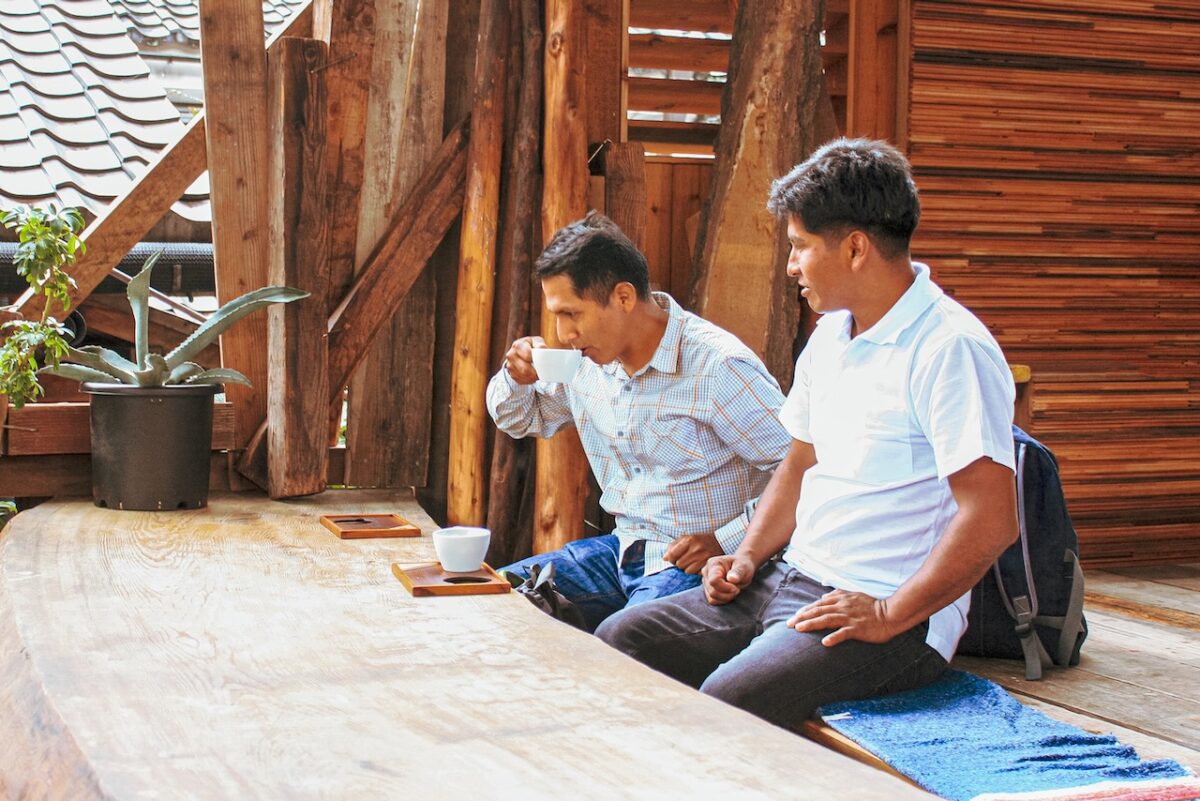
Specialty coffee producers have gathered from around the world to visit coffee roasteries in western Japan.
Roaster Visit kicked off in the Kansai region on October 7. During the 4-day program, coffee producers will visit various coffee shops in the country and see firsthand how the fruit of their labor is being enjoyed as a drink. On Day 1, about 30 producers with close ties with TYPICA took part in the tour. They came from 11 countries in Africa, Central and South America, and Asia. Splitting into four groups, the producers traveled to Osaka, Kyoto, and Nagoya, as well as the Tohoku northeastern region. In each of the destinations, the producers enjoyed Q&A sessions and cupping events with roasters through the common language of coffee.
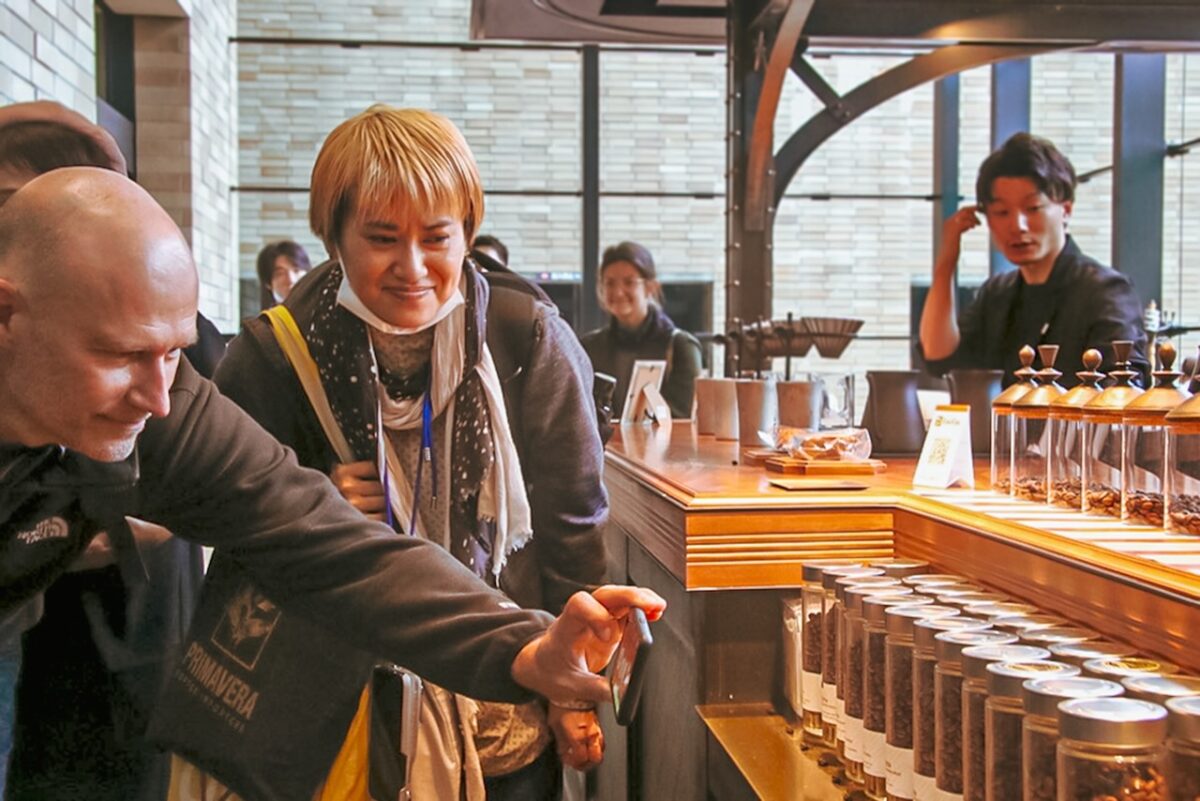
As the tour got underway in the morning of October 7, all three groups first stopped at GLITCH COFFEE OSAKA, which opened in June 2022 in the bustling Nakanoshima office district of Osaka City. The brandnew shop is fronted with soaring floor-to-ceiling windows. Inside, antique furniture adorn the cozy seating area, where vinyl records play songs selected by the GLITCH staff. The Osaka location is the third under the GLITCH brand, which was founded in Tokyo’s Jimbo-cho neighborhood.
Sakiko Sone, a community manager at TYPICA, says GLITCH has been buying from TYPICA since four years ago. She adds that she has cultivated the relationship with them with loving care. “When people come to GLITCH, they realize how delicious and fruity coffee can be. GLITCH has changed many people’s perception of coffee,” Sone said. “My words can’t do them justice. You should drink it yourself. Please experience the best of the best.” On that cue, the producers gathered around the counter to find out which brew they liked the most.
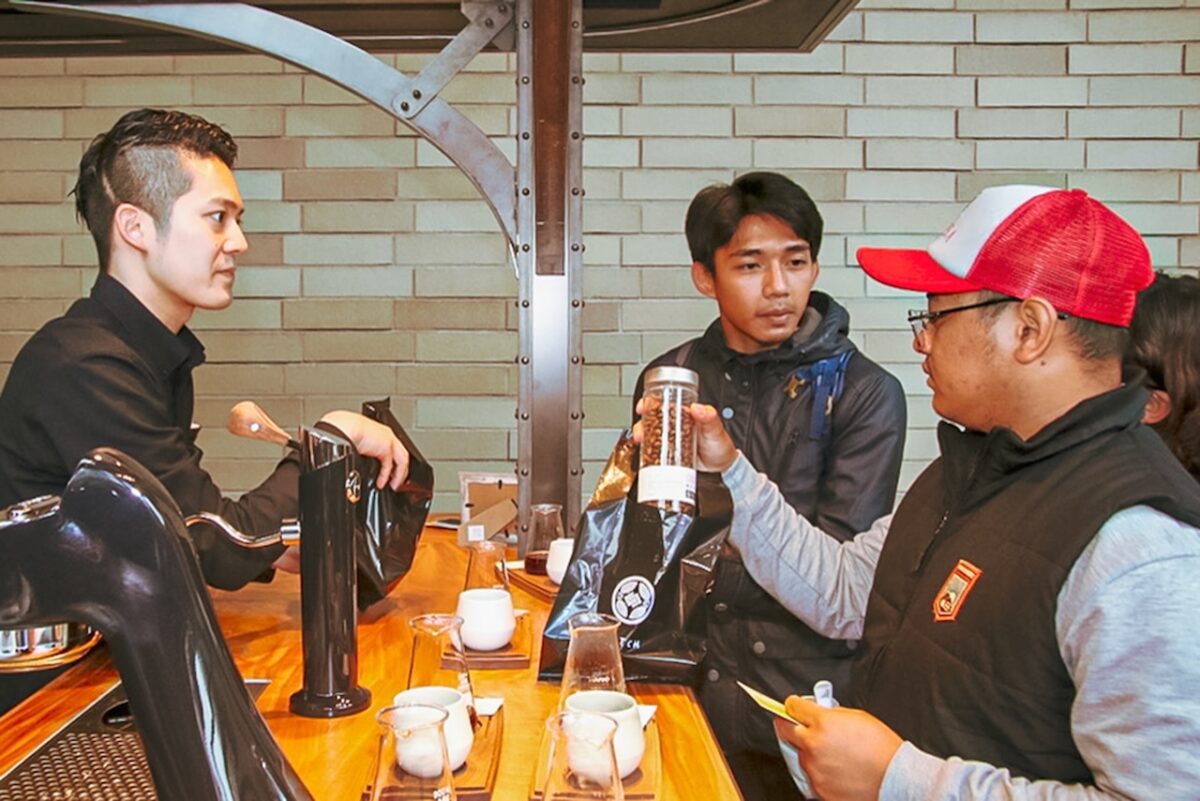
Among the producers was Fikri Raihan Hakim from Java Frinsa Estate, Indonesia. He said it was such a unique experience to receive a small card detailing tasting notes of each coffee. He added that some places in Indonesia also hand out a simple note but nothing as meticulous as the cards at GLITCH. He said, “As a producer, I couldn’t be more grateful.”
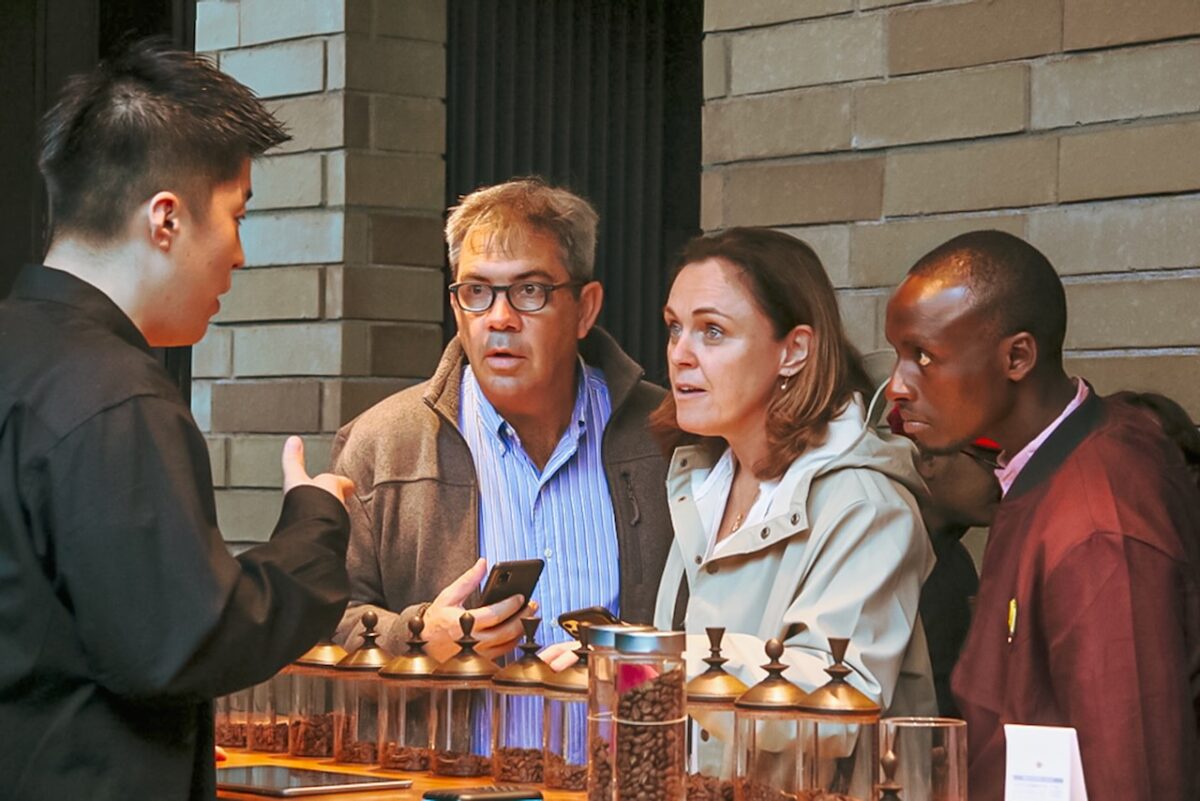
Leon Christianakis from Tanzania-based Acacia Hills said, “The whole experience is artistic, from the design of the shop to the serving of a cup of coffee. I’m impressed with their attention to detail.”
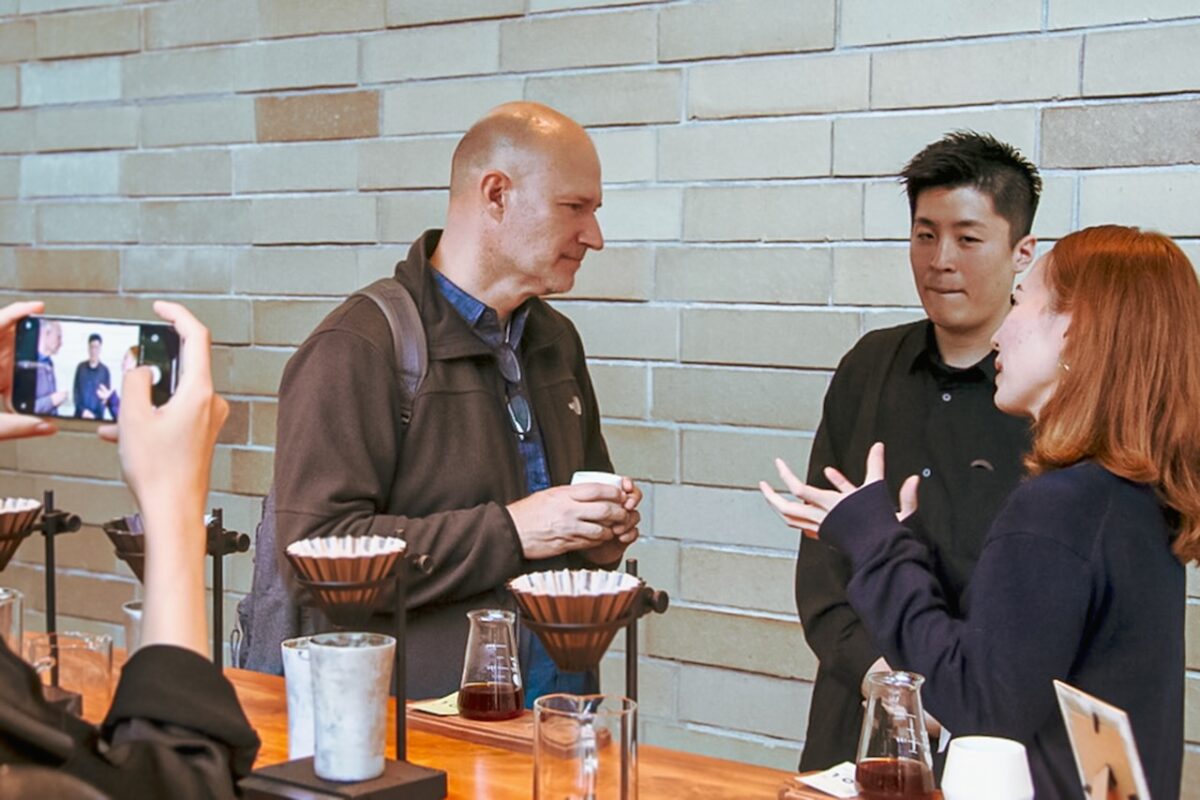
A staff member at GLITCH, Soma Tabata, said he was overcome with emotion to see how coffee fostered heartfelt communication not just between the producers and the GLITCH staff, but also between the producers and TYPICA members, and between the producers themselves. He said it’s amazing how coffee can connect different people. He added that he wants to make more effort to share the appeal of coffee with more people.
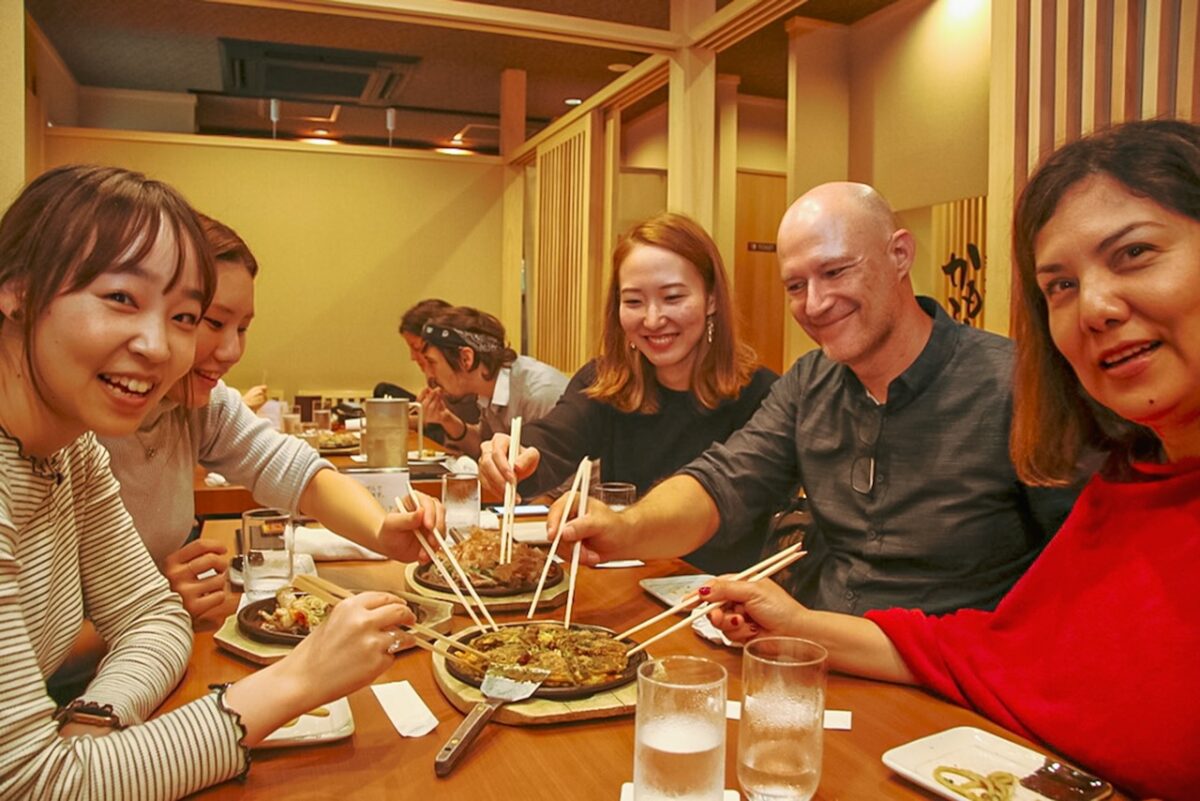
Afterwards, participants were divided into three groups. And each group enjoyed a tour of local culture, too. The Osaka group visited the Shinsai-bashi district, where they were treated to Osaka’s konamon culinary culture, which refers to the city’s abundance of flour-based soul foods. The group savored sizzling takoyaki and okonomiyaki.
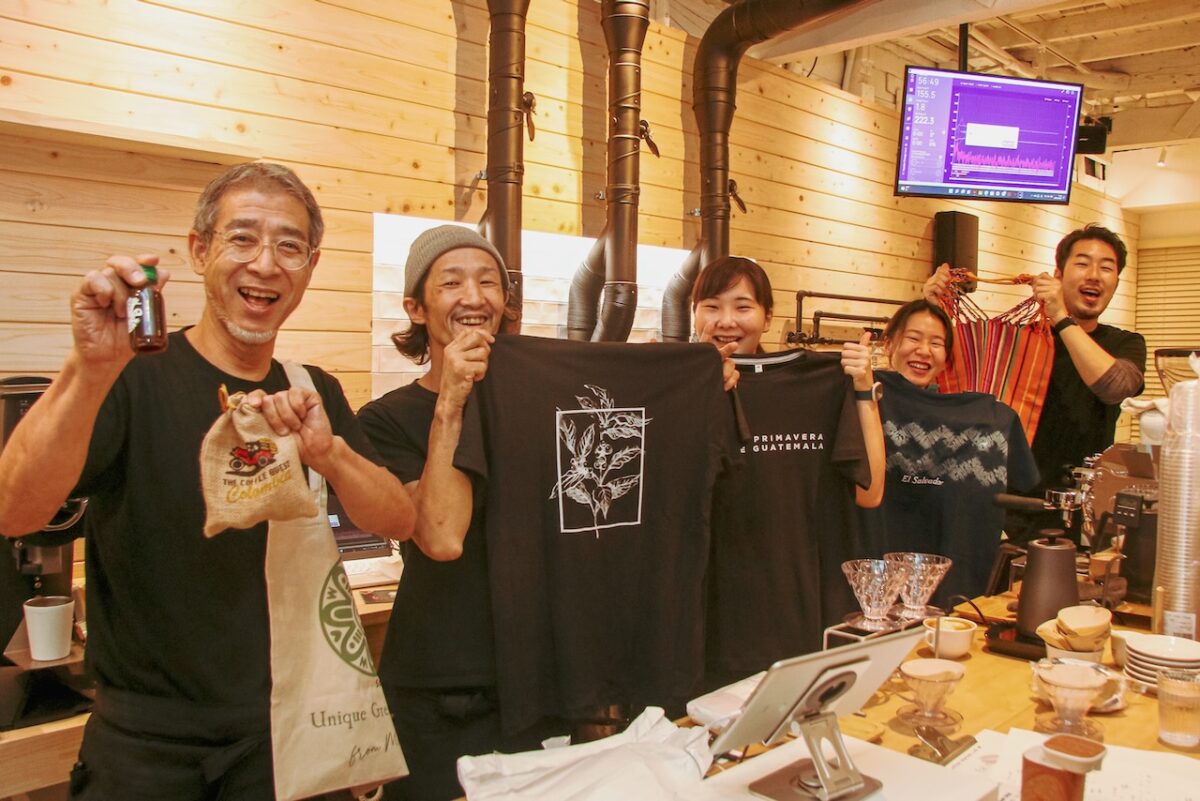
After the lunch break, the group headed to their next destination, The Coffee Market, which operates multiple locations in the Tennoji neighborhood. The group was given an exclusive look at The Coffee Market’s soon-to-open new shop, where they enjoyed pairings of specialty coffee and special fig sweets baked just for this occasion. Before leaving the shop, the producers presented the owner Shoji Furuya with some surprise gifts, such as T-shirts they brought from their countries. They thanked Furuya and his staff for warm hospitality and bid their farewell.
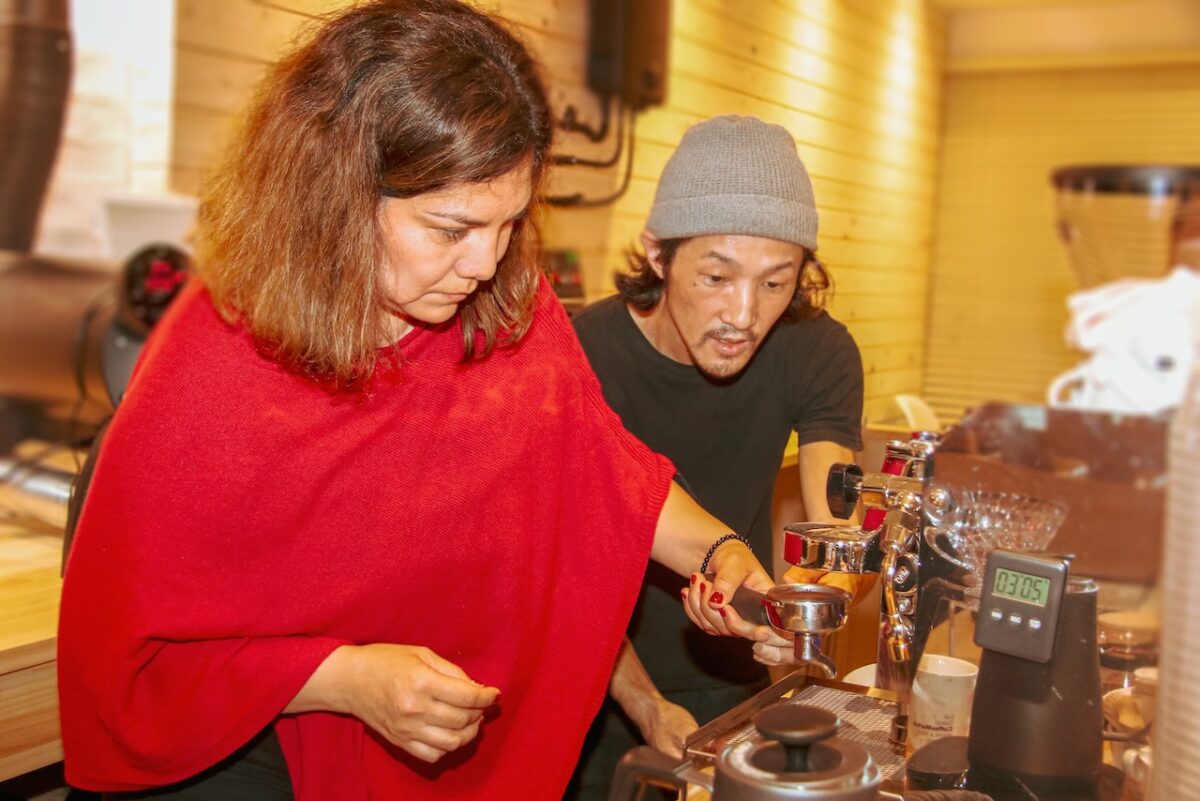
Angelica Bertram, a native of Mexico who founded Woolis in Germany, seemed very interested in The Coffee Market’s staff as well as members of TYPICA. She struck up a conversation with everyone, whenever she found the time to, and showered them with questions like, “How did you get into coffee?” “What is it about coffee that you fell in love with?” At one point, she raised a hand and requested to make a latte, and asked staff members to teach her how to make one.
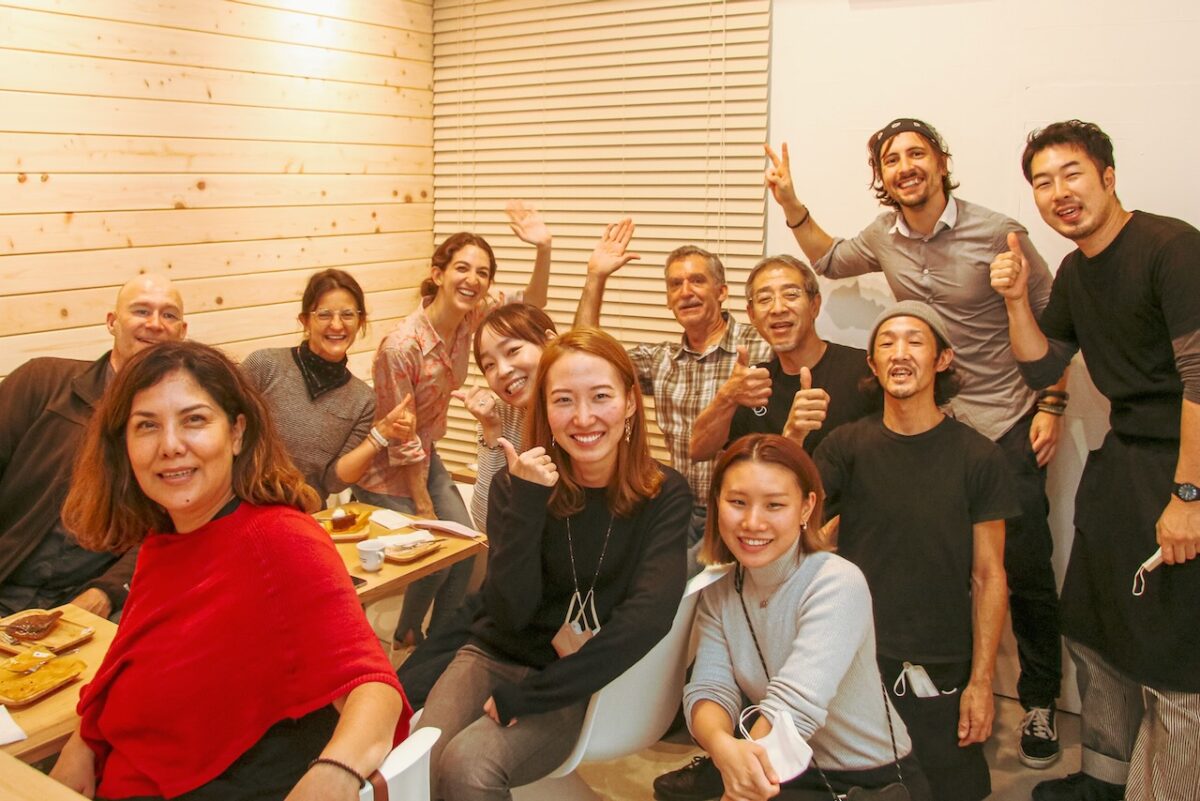
A staff member, Yusaku Takemura, said that he felt coffee has the power to transcend language barriers and start endless conversations. He noted that he was so carried away that he forgot to manage roasting. But with a smile on his face, he added that it would also be a fond memory to remember.
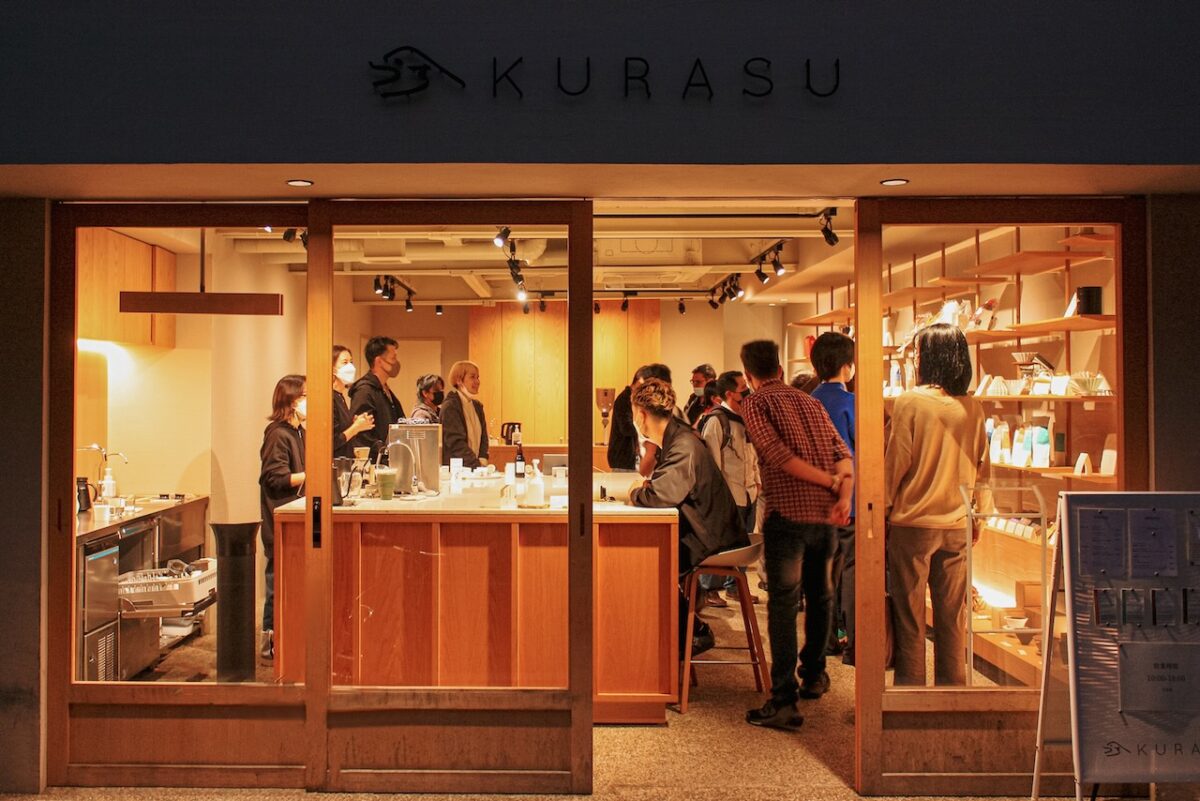
Meanwhile, the Kyoto group visited two roasteries after leaving GLITCH. Gabriela of Bolivia’s Finca Isabel said it was interesting that none of the shops served Bolivian coffee. She noted that all the roasters she visited today are doing their best, and that she realized she and other Bolivian producers need to work harder.
All three groups enjoyed cupping and dining until late evening, discussing the now and future of specialty coffee.








